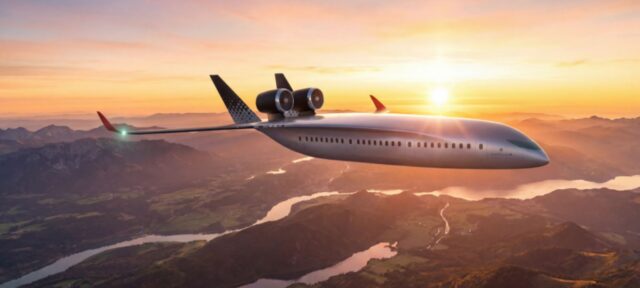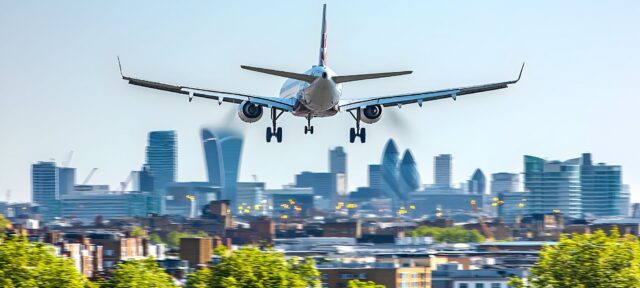Airbus reaffirms commitment to hydrogen-powered aircraft
March 26, 2025

Airbus has reaffirmed its commitment to bring a commercially viable hydrogen aircraft to market; unveiling an updated fuel-cell-powered airliner concept at its 2025 Summit. Progress is continuing on a down-selected design despite timeline readjustments that will see ultimate entry into service delayed by up to a decade.
“While we’ve adjusted our roadmap, our dedication to hydrogen-powered flight is unwavering,” explained Airbus head of future programmes Bruno Fichefeux. Informed by ongoing testing, Airbus’ “new, notional concept” of a hydrogen-powered aircraft builds on multiple hydrogen propulsion concepts explored over the last five years.
Powered by four 2-megawatt electric propulsion systems, the latest concept uses two liquid hydrogen fuel cells to supply four fuel cells, which in turn drive each engine. With Airbus explaining that the down-selected configuration will be refined “over the coming years,” the manufacturer remains confident it could provide the necessary power density for a commercial aircraft.
“In the coming years, we will concentrate on advancing the storage, distribution and propulsion systems, while also advocating for the regulatory framework needed to ensure these aircraft can take flight,” concluded ZEROe project head Glenn Llewellyn.
Last month, Airbus’ announcement that its ZEROe project would be delayed by up to a decade, with its initial goal of 2035 pushed back between five and ten years. “Recent developments indicate that progress on key enablers, particularly the availability of hydrogen produced from renewable energy sources at scale and the maturity of certain aircraft technologies, is slower than previously anticipated,” confirmed an Airbus spokesperson at the time.
However, although Airbus has not stated which of these technologies it perceives to be lagging in terms of maturity, fuel cells seem to be a key focus for ongoing development. “Just as we saw in the automotive sector, fully electric aircraft powered by hydrogen fuel cells have the potential in the longer term to revolutionise air transport for the better, complementing the sustainable aviation fuel pathway,” concluded Fichefeux.
First announced in 2020, Airbus’ ZEROe project initially explored a fully-electric concept before subsequently investigating hydrogen combustion and fuel cell options. The first ZEROe engine fuel cell was successfully powered on in late 2023, with Airbus describing the 1.2 megawatt test as “the most powerful test ever achieved in aviation of a fuel cell destined for large-scale aircraft”. In 2024, end-to-end testing of an integrated fuel cell stack, electric motors, gearboxes, inverters and heat exchangers was completed, while integrated ground testing of the propulsion and hydrogen distribution system is scheduled for 2027.
















